The Midwest Climate Adaptation Science Center (MW CASC) is pleased to announce seven newly-funded research projects for our 2023 fiscal year.
These projects were the result of a solicitation process that began with 46 statements of interest submitted by researchers from the U.S. Geological Survey and MW CASC consortium member institutions across the region. Each project is responsive to at least one of the five MW CASC’s regional science priorities, including heavy precipitation events and drought, the loss of winter, altered hydrological regimes, novel terrestrial landscapes, and barriers to and opportunities for adaptation. As with all MW CASC research, these projects also have an emphasis on co-production, with key partners identified in each proposal.
Learn more about each new project:
Expanding lessons from data-rich inland fisheries to data-limited scenarios for climate adaptation
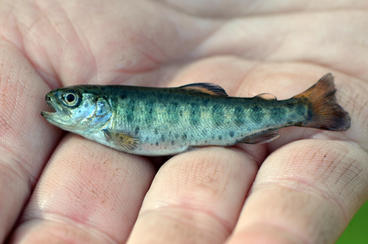
Led by primary investigator (PI) Chris Cahill of Michigan State University, this project aims to help fisheries managers address complex issues in a changing climate. Inland fisheries often consist of many isolated water bodies that are sensitive to temperature and precipitation changes and are logistically difficult to monitor, resulting in disparate or missing monitoring data. The research team will quantitatively test the impact of management interventions on fish population resilience, which will expand managers’ capacity to assess fisheries across a wide range of populations with limited information.
Project partners include the Wisconsin Department of Natural Resources, Minnesota Department of Natural Resources, Great Lakes Indian Fish and Wildlife Commission, and the University of Minnesota - Twin Cities.
Shallow groundwater and stream temperature modeling to assess the effect of warming temperatures on coldwater fish spawning
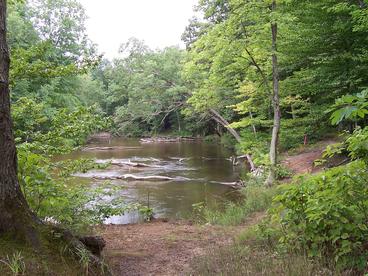
Led by PI Chanse Ford of the USGS Upper Midwest Water Science Center, this project is focused on groundwater and stream temperature modeling. Groundwater discharge is a key determinant of habitat conditions for economically and culturally important cold-water fish in the Midwest, and it is being altered by warming winter temperatures. While the importance of groundwater in moderating stream temperature in summer is well understood, year-round influence of groundwater inputs is unknown. Through coupled groundwater-surface water modeling, this project will quantify changes to the location and spatial extent of thermal refugia in Michigan’s White River watershed. Findings will inform cold-water fish habitat management in groundwater-dominated streams across the Midwest.
Project partners include the U.S. Forest Service, Trout Unlimited, Michigan Department of Natural Resources, Michigan State University, and the University of Southern Indiana.
How prairie restoration outcomes are impacted by interactions between winter climate change and the timing of disturbance
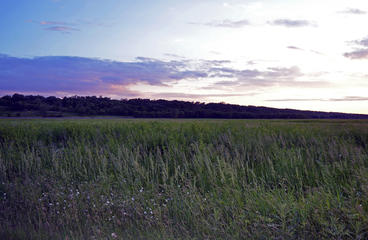
In the Midwest, where winter climate change is occurring more rapidly than other seasons, a key prairie conservation concern is whether winter climate change interacts with management to affect restoration outcomes. This project, led by PI Ellen Damschen of the University of Wisconsin, Madison, will leverage ongoing experiments to produce long-term data detailing plant community change under winter climate change and different types and timings of disturbance. Findings will inform the design of management actions that restore and maintain prairie habitat under future climate conditions.
Project partners include The Nature Conservancy, The Prairie Enthusiasts, Adaptive Restoration, LLC, and the Wisconsin Department of Natural Resources.
State wildlife action planning in the Midwest
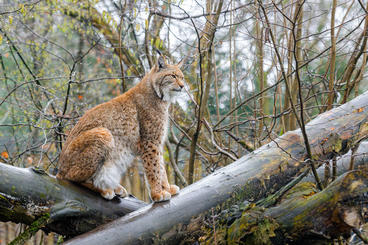
As part of the State Wildlife Grant Fund, states are required to submit State Wildlife Plans (SWAPs) every 10 years detailing threats to habitats and species and conservation plans. However, incorporating climate change in SWAPs is voluntary, and capacity limitations at state agencies have resulted in varied and often only partial consideration of climate change impacts. Led by project PI Hugh Ratcliffe, the MW CASC will conduct literature reviews to assess climate stressors and impacts to habitats and key species for 13 different EPA Ecoregions contained within the Midwest in order to provide a foundation for future habitat vulnerability assessments.
Project partners include the Midwest Landscape Initiative, the Missouri Department of Conservation, and the Michigan, Illinois, Ohio, Minnesota, Indiana, Wisconsin, and Iowa Departments of Natural Resources.
Synthesizing responses and vulnerabilities of priority aquatic invertebrates to precipitation extremes across the Midwest
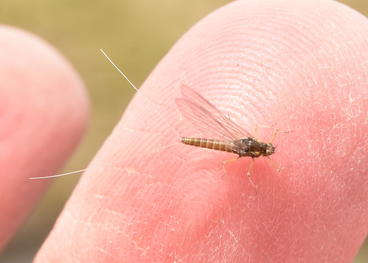
Freshwater invertebrates are broadly sensitive and vulnerable to droughts, flooding, and altered hydrological regimes, and may serve as a bellwether for how other aquatic organisms will respond to environmental change. This project, led by Jason Bried of the University of Illinois Urbana-Champaign, will leverage bioclimatic modeling approaches and expert knowledge and experiences to quantify the biological consequences of precipitation extremes on freshwater invertebrates. Project findings will help scientists, managers, and community volunteers assess the vulnerability of freshwater resources.
Project partners include the National Oceanic and Atmospheric Administration (NOAA), Terwilliger Consulting Inc., Midwest Landscape Initiative, University of Illinois - Urbana-Champaign, Purdue University, Hillsdale College, Washington State University, University of Vermont, and Lewis and Clark Community College.
Assessing and advancing different ways of knowing in climate adaptation in the Midwest
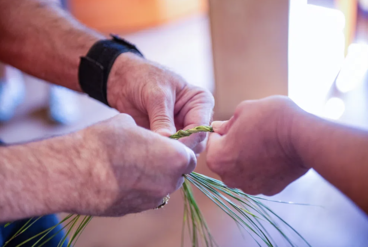
The MW CASC works collaboratively with its regional partners to identify adaptation needs, create adaptation interventions, and distribute adaptation science to Tribal and non-Tribal practitioners. Within this regional community, climate impacts and adaptation activities take place in various cultural and ecological settings and are conceptualized through a diverse set of knowledge systems. To support the growth of an engaged and diverse adaptation workforce, this project will promote and increase awareness of Indigenous or traditional ecological knowledge (ITEK) in adaptation practice in the Midwest region and create programs to encourage practitioners and researchers to work collaboratively to generate actionable adaptation research. This project is led by PI Jessica Hellmann, MW CASC Consortium Director and Executive Director of the University of Minnesota’s Institute on the Environment.
Project partners include The Nature Conservancy, Great Lakes Indian Fish and Wildlife Commission, College of Menominee Nation, University of Wisconsin - Madison, Michigan State University, Indiana University - Bloomington, and the University of Illinois - Urbana-Champaign.
Mapping climate-informed habitat restoration priorities with multi-sector benefits for 3 Upper Midwest ecoregions
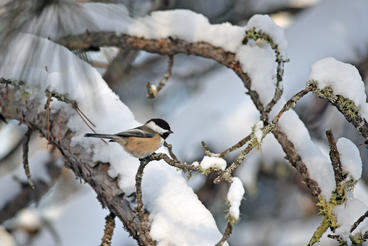
Increasing habitat connectivity is recommended to support biodiversity conservation in the Midwest, but managers lack tools needed to consider different scenarios and develop prioritizations that maximize conservation investment impacts. Through collaboration with agency land managers and Tribes, this project will co-develop criteria for identifying high priority habitat restoration locations across three Upper Midwest ecoregions to enhance connectivity and support species’ range shifts, maintain valuable ecosystem services, and identify climate adaptation practices that yield nature-based co-benefits. This project is led by PI Marissa Ahlering of The Nature Conservancy.
Project partners include the U.S. Fish and Wildlife Service, U.S. Forest Service, The Nature Conservancy, Minnesota Department of Natural Resources, Great Lakes Indian Fish and Wildlife Commission, and Iowa State University.
A decision support and prioritization framework for invasive plant management under fluctuating Great Lakes water levels
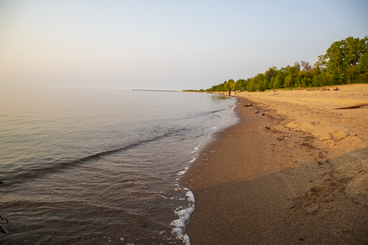
Water level fluctuations in the Great Lakes Basin are intensifying in frequency and magnitude, directly impacting invasive plant management decisions and outcomes. Recent low water events have fueled expansion of the invasive Phragmites australis. High lake levels, however, offer an opportunity for managers to induce Phragmites stand mortality through cutting. While this strategy is effective, developing prioritizations that maximize conservation investment impacts is challenging. This project, led by PI Wesley Bickford of the USGS Great Lakes Science Center, will update existing Phragmites habitat suitability indices to account for influence of lake levels on invasion potential. Results will inform a support tool to prioritize treatment opportunities based on near live water level conditions.
Project partners include the USGS, U.S. Fish and Wildlife Service, and the Great Lakes Phragmites Collaborative.
Check out our September Science Seminar to hear from new project PIs. You can also learn about current research projects across our region and beyond at the CASC Project Explorer website. Research project funding is provided by the USGS. Want to be notified when the next CASC project solicitation process begins? Let us know.
